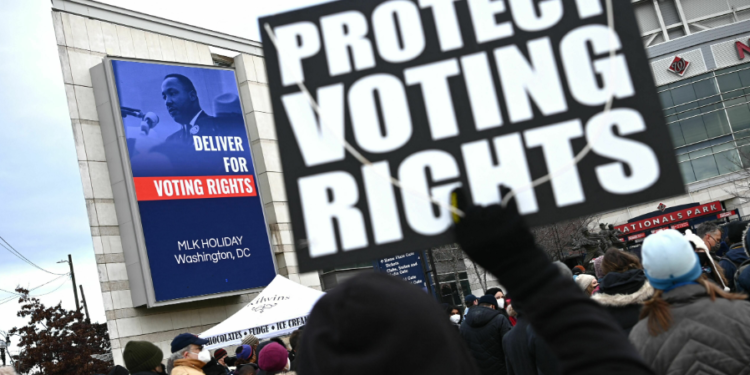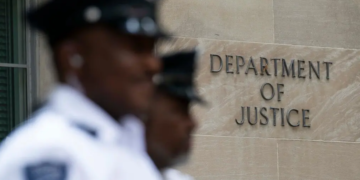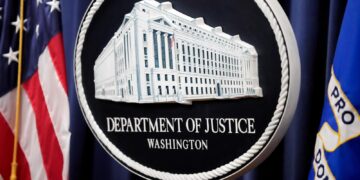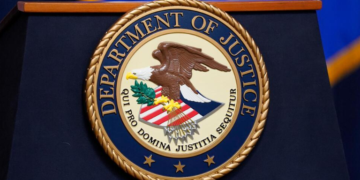Dec 14, 2024 Story by: Editor
The Electoral Count Reform Act of 2022 requires all states to certify presidential election results by December 11th for submission to the Electoral College. Fortunately, the process has proceeded smoothly this year. However, the disputes surrounding state certification between 2020 and 2024 have eroded trust in American democracy. This article delves into how the 2013 Supreme Court decision that weakened Section 5 of the Voting Rights Act (VRA) and Congress’ failure to pass the John Lewis Voting Rights Advancement Act (JLVRAA) intensified certification battles in states like Georgia, previously subject to federal oversight.
Had the JLVRAA been enacted or Georgia adopted a similar Voting Rights Act, voter rights would have been more clearly safeguarded. This could have mitigated the impact of election deniers in areas once covered by Section 5.
The Shelby v. Holder Decision and Its Impact
In the pivotal 2013 Shelby v. Holder decision, the Supreme Court nullified the preclearance provisions of Section 5 of the VRA. The ruling, rooted in a pre-Reconstruction “state’s rights” argument, incorrectly assumed that voting discrimination had significantly diminished. This decision affected states like Georgia, Arizona, Michigan, North Carolina, and Virginia, which were previously under federal oversight.
Preclearance required jurisdictions to obtain approval from the Department of Justice (DOJ) or a federal court before implementing changes in voting practices. These provisions protected against racial discrimination without needing to prove intent, focusing instead on whether changes “den[y] or abridg[e] the right to vote on account of race or color.”
The VRA was explicitly designed to address evolving forms of voter discrimination. Its preclearance provisions encompassed all changes to voting procedures, ensuring that voters of color could elect their preferred candidates. As emphasized in the 1992 Supreme Court ruling, “Our prior cases hold, and we reaffirm today, that every change in rules governing voting must be precleared.” Similarly, in a 2023 Alabama redistricting case, the court reiterated that the VRA’s broad language applies to all actions required for voting and having ballots properly counted.
Preclearance Mechanism
Under preclearance, any voting-related changes had to undergo a 60-day federal review. The federal government examined data to assess whether changes had discriminatory effects or retrogressive impacts. This system prevented jurisdictions from implementing last-minute, potentially harmful changes during elections. If changes undermined the ability of voters of color to have equal access to the ballot, they were blocked.
Certification Threats in Georgia
In 2020, Georgia faced growing threats to election certification, culminating in 2024. Between July and October, the Georgia State Elections Board (SEB) introduced new rules that illegally expanded local election boards’ discretion to withhold certification. These changes disproportionately threatened Black voters, who represent nearly one-third of Georgia’s electorate.
Advocacy and litigation eventually defeated the SEB’s measures, allowing Georgia’s Secretary of State Brad Raffensperger to certify the 2024 presidential election results on November 21st. Without this resolution, Georgia’s 159 counties risked missing the December 11th Electoral College deadline.
Discriminatory Impacts
The SEB’s changes jeopardized the rights of Georgia’s nearly 2.5 million eligible Black voters, as well as other voters of color. Given that 8.4% of the nation’s Black electorate resides in Georgia, any delay in certification would have disproportionately diluted Black voting power.
Georgia’s history of racial discrimination in voting exacerbates these risks. As noted by a federal court in Alpha Phi Alpha Fraternity v. Raffensperger, “Georgia has a history chocked full of racial discrimination at all levels… Racism and race discrimination were apparent and conspicuous realities, the norm rather than the exception.”
In the years following the Shelby decision, Georgia enacted more discriminatory voting restrictions than any other state, according to the U.S. Commission on Civil Rights. In 2023, the court ruled that Georgia’s redistricting plan violated Section 2 of the VRA due to its discriminatory impact on voters of color. This pattern of disenfranchisement, often triggered by rising nonwhite voter turnout, underscores the need for robust voting rights protections.
The Role of Preclearance
Preclearance reviews would have accounted for the SEB’s failure to address racial impact data and their lack of transparency. As federal regulations require jurisdictions to involve minority groups in decision-making, the SEB’s actions would likely have been blocked under preclearance.
The challenges in Georgia illustrate how the erosion of the VRA’s protections has left voters vulnerable to discriminatory practices. Restoring these safeguards, whether through federal or state legislation, remains crucial for protecting the integrity of the democratic process. Source: Citizens for Ethics
















